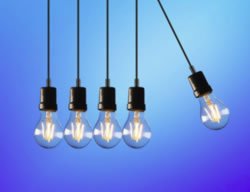The @steemph.antipolo Blogging Workshop - 04

As English speakers, knowing when something happened or will happen is very important and this is indicated by the in-depth verb tenses used in the language.
VERB TENSES

nglish is, without a doubt, a chronological language, in that, time is critical to fully understand the context of anything that is said or written. As English speakers, knowing when something happened or will happen is very important and this is indicated by the in-depth verb tenses used in the language.
For most second language speakers, verb tenses can be the most difficult p-art of grammar to master -- especially when your native language lacks any formal tenses.
My wife, as a Filipino, has in her native language, the concept of past and present, but the future is limited to what is going on now and set to continue for only a short period of time. When its payday, she runs to the ATM and withdrawals her entire paycheck and puts it into her closet. I find it there, take it and put that money into a savings account where it accrues interest -- because we make more than we actually spend each month.
Most people are familiar with the three verb tenses of past, present and future. But that is where the problem lays. There are in fact three tenses, but there are four aspects of each of those tenses, which results in a total of twelve tenses to learn.
These four aspects are simple, continuous, perfect and perfect continuous. As a result, this means that there is a simple past, past perfect, a past continuous and a perfect continuous past. The same for present and future tenses as well.
Because of this overwhelming complexity, we need to break this down into easier to understand chunks.
PAST
The past refers to everything that happened before this very moment, the moment in which the speaker is speaking, or on Steemit, the moment that the author is writing.
PRESENT
The present refers to everything that is happening at this very moment, the moment in which the speaker is speaking, or when the Steemian is writing his or her most recent post.
FUTURE
The future refers to anything that will happen in the future, anything that will happen after the moment in which the speaker is speaking, or when the author is writing his or her latest edition.
SIMPLE ASPECT
The simple aspect is just that -- its simple. It is how we talk about general things, our regular day-to-day routines. It is the form of the verb tenses that all second language speakers are readily taught in school. Whether past, present or future, this is the verb in its most simplest terms.
PERFECT ASPECT
The perfect aspect refers to something that was completed at the moment that someone was speaking. If you are writing about something that happened in the past, you’d generally use the simple aspect, but if that action only just ended as you started speaking about it, then the proper aspect to use is the perfect aspect -- signifying that the action has been perfected. It is also used in the present and future tenses when signifying the exact point in which an action will end.
CONTINUOUS
The continuous aspect refers to something that is going on at the very moment that you are speaking or writing. It can be something that started in the past, and continued on until now, something that started as you began speaking or writing and will continue on into the future, or even something that started in the future and will continue on until some point further into the future.
PERFECT CONTINUOUS
The perfect continuous aspect is a combination of both the perfect and continuous aspects -- meaning that the action is continuous based on the tense, but that it ends at a specific known point. The continuous action is perfected at some known point in the past, present or future.
| ASPECT | PAST | PRESENT | FUTURE |
|---|---|---|---|
| Simple | Past Simple VERB + ed watched |
Present Simple VERB + s watches |
Future Simple 'will' + VERB will watch |
| Perfect | Past Perfect 'was/were' + VERB + ing was/were watching |
Present Perfect 'am/is/are' + VERB + ing am/is/are watching |
Future Perfect 'will be' + VERB + ing will be watching |
| Continuous | Past Continuous 'had' + VERB + ed had watched |
Present Continuous 'have/had' + VERB + ed had/have watched |
Future Continuous 'will have' + VERB +ed will have watched |
| Perfect Continuous | Past Perfect Continuous 'had been' + VERB + ing had been watching |
Present Perfect Continuous 'have/has been' + VERB + ing have/has been watching |
Future Perfect Continuous 'will have been' + VERB + ing will have been watching |
The End



